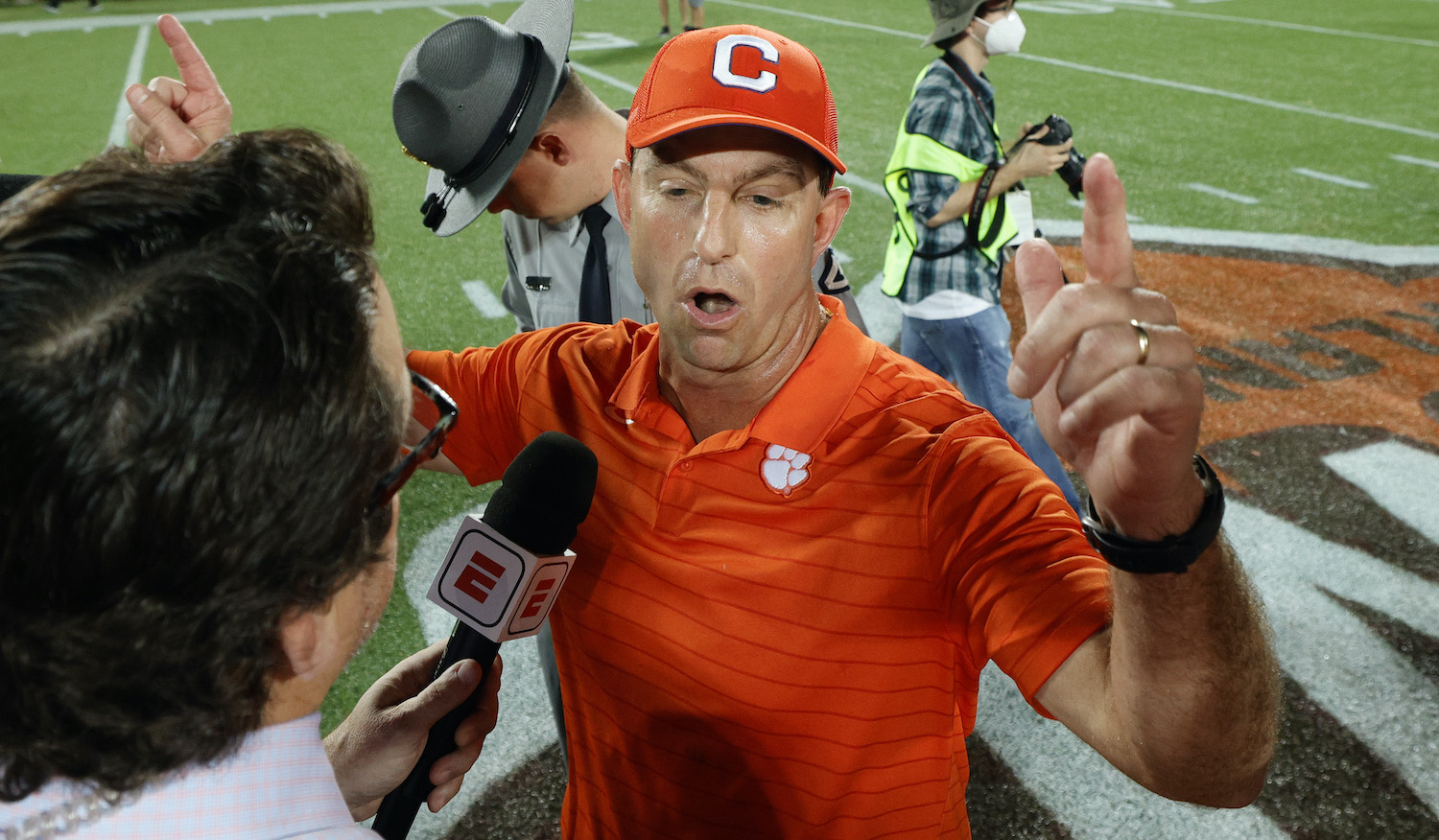The labor dynamics of college football as we know it are inarguably in flux, and unless you are someone who is invested in preserving the existing power structures of the sport, this is mostly for the better. So-called name, image, and likeness rules have opened the door for college athletes to profit off of their abilities and popularity, and even if the new regulations amount to the NCAA getting someone else to pay its labor force for it, athletes are now at least allowed to sell their services on the market and be compensated over the table. Easing of transfer rules have also allowed athletes to move between schools without having to sit out for a year, which, from the perspective of the fan or school administrator, can be seen as a blow to continuity and institutional control over athletes's services, but in plainly material terms, represents another significant gain for labor's freedom of movement.
Who is losing here? The NCAA's absolute power over its athletes is only slightly more tenuous than it was before NIL rules came into place, though it is not actually sharing any of the revenue pie, and NIL and transfers still take place under and therefore affirm the aegis of the NCAA as an organizing body. Both new regulations change the way recruiting functions, and if any class has lost leverage, it is coaches, the most prestigious of whom earn unconscionable salaries. A five-star recruit operating to maximize their earning potential might no longer necessarily need to play for a well-regarded coach or for a powerhouse program, and the ability to swap schools without sacrificing a year gives players another lever to pull. Consider that Nick Saban, the highest-paid coach in college football, makes $9.5 million per year, while a five-star recruit just signed an $8 million, three-year NIL deal. While not necessarily equal to Saban, that unnamed player is in the same stratosphere as Saban, and crucially, is making more than $0. All of which is to say, things are changing, and any college football coach that wants to stride into this contested future must adapt. Really, they must not operate like Dabo Swinney.
Swinney gave a big interview to ESPN on the eve of Clemson's Spring Game, in which he discussed the new economic paradigm of college football. Readers familiar with Swinney's schtick, or hits such as "Florida State Are Cowards Because They Refuse To Become Infected With The Novel Coronavirus By Playing Us", should be able to guess his take on players getting, well, anything. On NIL:
There's no rules, no guidance, no nothing. It's out of control. It's not sustainable. It's an absolute mess and a train wreck, and the kids are going to be the ones who suffer in the end. There are going to be a lot of kids that end up with no degrees and make decisions based on the wrong things. There are going to be a lot of decisions based on short-term stuff, and they're going to sacrifice the long-term value of education, relationships and connectivity.
ESPN
Swinney's argument is basically: players will chase NIL deals at the expense of their education (?); players earning money will set them down a "slippery slope" that will eventually cost them scholarships (??); therefore, players need to be insulated from the consequences of their choices—e.g. to earn money in exchange for their labor—by schools who will give them education, which is mutually exclusive with earning money in exchange for one's labor (???). When asked about the obvious contradiction that Swinney makes $8.5 million per year to coach a team of unpaid players, his response was that he is more important than them:
Well, Nick Saban is 70 years old. I'm 52 years old. None of us set markets on what we do. We live in a capitalist society. The head of Delta probably makes a lot more than the people who are checking your baggage in, but those people are as vital as anybody. None of us set markets on what we do. It's a free market we live in, in anything. It's just that our jobs are so visible and so public. I can tell you this: None of us got into coaching to make money, but I don't apologize for being successful.
ESPN
In purely football terms, Swinney's mulishness seems dumb, as any college athlete who can now conceive of the recruiting process in financial terms can opt to play for a coach less wedded to an extractive system. But from Swinney's perspective, he is mounting a defense of his grossly unequal position on the only terms possible. There really is no economic justification for a coach making, in the most charitable interpretation, orders of magnitude more money than his players (there's a reason it's not the case in any professional sport) unless there truly is something special and magical about the specific set-up of playing college football for a certain school that makes up for the gap. But if the value of a Clemson degree is actually wildly out of whack with the revenue generated by college football, and if coaches are earning the money that players should be getting—if whatever recruiting skill they possess can be replaced by financial incentives for players—then there's no reason for them to be paid more, as they would no longer generate value. So while Swinney is simply being an irascible old fuck, he's also telling us something useful, which is that he's worried about his leverage. I hope he has good reason to feel that way.






